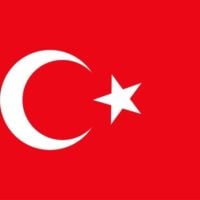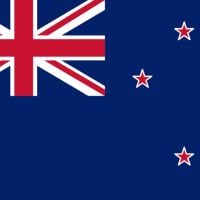Deadline: 24-Jul-23
The Critical Ecosystem Partnership Fund (CEPF) and the Caribbean Natural Resources Institute (CANARI), as regional implementation team (RIT) for the Caribbean Islands Biodiversity Hotspot, are inviting letters of inquiry (LOIs) from non-governmental organizations, community groups, private enterprises, universities and other civil society organizations active in the eligible geographic areas in Antigua and Barbuda, The Bahamas, Dominican Republic, Jamaica, Saint Lucia, and St. Vincent and the Grenadines.
This investment seeks to improve the capacity of civil society organizations to reduce threats to globally important biodiversity in the Caribbean Islands Biodiversity Hotspot. Projects supported under this investment should help:
- Civil society organisations increase their capacity to reduce key threats to biodiversity
- Civil society organisations increase their organizational capacity
- Civil society organisations increase their capacity to participate in conservation-related networks
- Priority Key Biodiversity Areas (KBAs) reduce threat(s) to biodiversity.
Priorities
- Strategic Directions and Investment Priorities
- Improve the protection and management of 33 priority sites for long-term sustainability.
- Increase landscape-level connectivity and ecosystem resilience in seven priority corridors.
- Improve the enabling conditions for biodiversity conservation in countries with priority sites.
- Support Caribbean civil society to conserve biodiversity by building local, national and regional institutional capacity and fostering stakeholder collaboration.
Funding Information
- This call covers funding for small and large grants:
- Small grants are between US$5,000 and US$50,000. The RIT expects small-grant projects under this call to be contracted and start implementation between December and February 2024.
- Large grants are defined as greater than US$50,000. CEPF decides on the amount to be awarded based on the scope and magnitude of the conservation results expected to be achieved. CEPF expects large-grant projects under this call to be contracted and start implementation between January and March 2024.
Eligible Activities
- Projects should seek to:
- Ameliorate threats: A core goal of the CEPF is to build local capacity to reduce threats to biodiversity in the priority KBAs and for priority species. CEPF, therefore, requests applicants to make explicit linkages between how their project will build capacity and reduce key threats to KBAs and species.
- Build CSO Capacity: Applicants are encouraged to think about their technical and institutional capacity needs as they develop their projects, particularly with respect to the CEPF Civil Society Tracking Tool (CSTT), (English, Spanish), threats reduction for biodiversity conservation, and promotion of gender equity and attention to vulnerable groups, and to include a specific component responding to these needs, where relevant.
Eligible Countries: Antigua and Barbuda, The Bahamas, the Dominican Republic, Jamaica, Saint Lucia, and St. Vincent and the Grenadines.
Eligibility Criteria
- Non-governmental organizations, community groups, universities and private enterprises may apply for funding. Individuals must work with civil society organizations to develop applications rather than apply directly.
- To qualify for a CEPF grant, the applicant must not be a government agency or institution.
- Government-owned enterprises or institutions are eligible only if they can establish that they:
- have a legal personality independent of any government agency or actor;
- have the authority to apply for and receive private funds; and
- may not assert a claim of sovereign immunity.
- Applicants based outside of the eligible countries may submit an LOI as long as the project deliverables are focused on the conservation need within a priority corridor.
- Joint projects with other organizations are eligible, with one lead organization submitting the application and project partners with clear roles stated in the application.
For more information, visit CEPF.







































